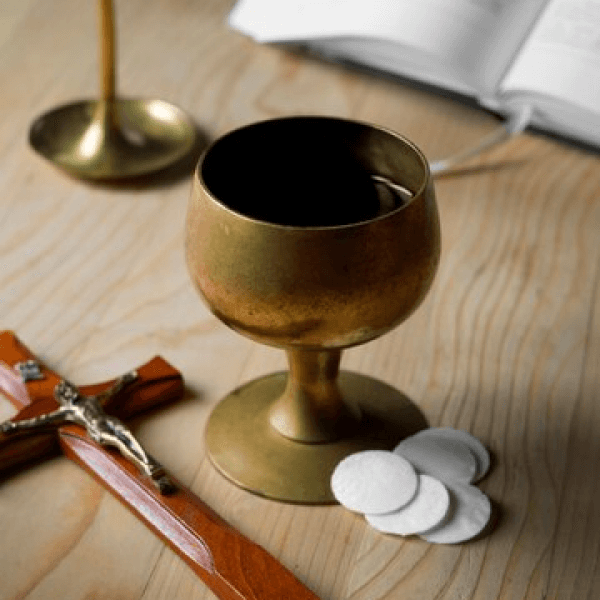
Being Prepared Is the Best Church Security Plan
In today’s world, ensuring the security of our churches is paramount. We cannot afford to be complacent and must proactively prepare for any potential threats. Implementing effective security measures and maintaining clear communication is essential to developing a robust church security plan. To help you create a safer environment, here are ten actionable steps you can take starting today.
1. Make Sure Your Church Security Plan Has Assigned Roles
It is crucial to identify trained individuals within your church who are willing to fulfill security roles. Before an emergency occurs, it is essential to establish clear responsibilities for key positions, including:
- Media Representatives and Spokespersons: Determine who will communicate with the public and media in the event of a security threat, whether at a local, national, or international level.
- Child Care Staff: Designate individuals responsible for ensuring the safety and protection of children during emergencies. Their priority should be safeguarding the well-being of the youngest members of the congregation.
- Medical Roles: Identify individuals within your congregation who have medical training, such as nurses or doctors. They should be prepared to handle life-threatening situations and know the appropriate steps to take, including when to call 911.
- Security Staff: If your fellowship includes members who have experience in law enforcement, military, or firefighting, consider involving them in the security team. Their expertise can be invaluable during critical situations.
By clearly defining these roles, you can enhance the preparedness of your church community and ensure a coordinated response in times of need.
2. Conduct Background Checks on Volunteers and Members
When organizing church events, gatherings, and outreach projects that involve volunteers, it is crucial to prioritize the safety and security of everyone involved. Implementing background security checks is an important step in ensuring a secure environment.
This can be done through various means, such as utilizing a digital platform, creating a Facebook Group, or using simple registration forms. By registering individuals and noting their details before engaging in any church activities, you establish a proper security protocol.
In addition to the security benefits, background checks contribute to a sense of safety and peace for all participants. Creating a welcoming and secure atmosphere is a significant goal when inviting individuals to join your church community.
3. Have Emergency Scripts for Your Church Security Plan
It is important to recognize that your congregation looks to the pastor for guidance, especially in times of emergency. In the event of an emergency occurring during a meeting or service, it is crucial for pastors to be adequately prepared to handle the situation. It is natural for there to be initial shock and a potential loss of words. This is where having a scripted text can be invaluable and potentially save lives.
An ideal emergency script, prepared by your pastoral team, should accomplish the following key objectives:
- Convey a sense of urgency to the congregation.
- Calm panic or fear among the attendees.
- Clearly communicate the immediate safety measures that should be taken.
- Provide guidance on specific physical actions to be taken, including which rooms or exits to utilize.
By having a well-prepared emergency script in place, your pastoral team can effectively guide and ensure the safety of the congregation during unforeseen circumstances.
4. Invest in Communication Tools
In areas with poor cellphone reception, two-way radios are valuable for reliable communication during emergencies. Additionally, utilizing social networks like Twitter can provide a platform for disseminating information and updates. However, it is crucial to ensure responsible sharing to prevent unnecessary fear or confusion. Maintaining effective communication channels fosters a sense of calm and enhances overall security within the community.
5. Remember That Cameras Are Vital for Church Security Plans
In addition to utilizing two-way radios, it is essential to have surveillance cameras in place to monitor movement after an emergency. Recording incidents through these cameras provides valuable documentation and legal protection in potential disputes. Ensure that your security cameras are installed, fully operational, and actively recording during all services to safeguard your ministry and address any legal concerns effectively.
6. Think of the Pastor’s Pulpit Positioning
As part of the church security plan, it is important to consider the layout and design of the pastor and congregation’s positions. It is advisable to have the pulpit facing both the crowd and the exit doors. Instead of placing the stage or pulpit in the center of the building, consider positioning them to the side, or near an exit or escape room as an enhanced safety measure.
7. Ensure That Exit Points Are Known By All
Don’t overlook the importance of practicing emergency exits. Just like conducting fire drills in the community, it’s crucial to allocate time for practicing emergency procedures. This ensures that everyone is familiar with the necessary information in case of an emergency. If you’re hosting a theatrical show and dimming the lights, make sure the exit doors remain well-lit, and ensure that everyone is aware of their locations.
8. Communicate, Discuss, and Develop
Church leadership should continuously strive to enhance the well-being of their congregation, going beyond spiritual guidance. This encompasses addressing matters of physical safety, security, and acknowledging potential threats to the church and its members.
Though these discussions may be challenging, fostering an environment of openness and frankness within church departments is essential. It may prove invaluable in the future, ensuring preparedness and gratitude for the proactive approach taken.
9. Watch Out for Other Potential Sources of Disruption
While media often focuses on high-profile security issues like shootings or protests, it’s crucial to recognize that security concerns extend beyond those headlines. The term “terrorism” can also evoke fear rather than foster faith in the congregation.
In reality, common security issues can arise from a variety of sources. These include domestic situations, mental health challenges among youth in the church community, and child custody disputes. Church leaders must not overlook these problems, as addressing them is equally important for ensuring the well-being and safety of their members.
10. Don’t Let This Take Your Joy From You
In Psalms 5:11, King David expressed the importance of taking refuge in God and finding joy in His protection. Despite the constant dangers he faced, David exemplified a spirit of faith and trust. As leaders, we must follow his example, inspiring and uplifting our church members during dangerous times.
While having a solid security plan is crucial, it is equally important to cultivate an atmosphere of peace and joy within the church. Let your church be a sanctuary of love, acceptance, and support for people in times of joy, despair, loneliness, and even potential threats.
By being prepared with a security plan, you ensure that your church remains a safe haven for all who seek refuge.


